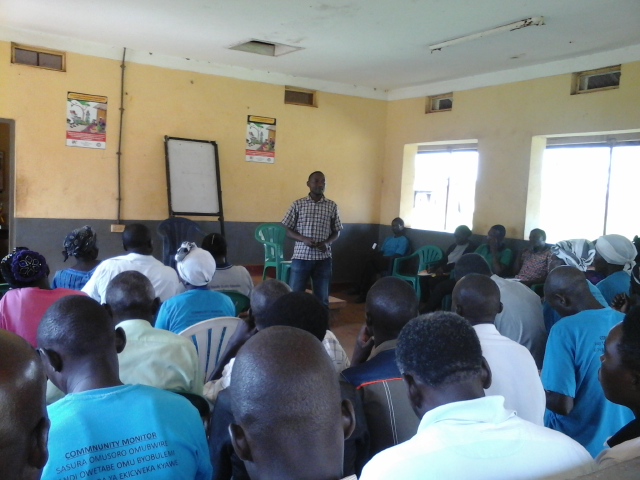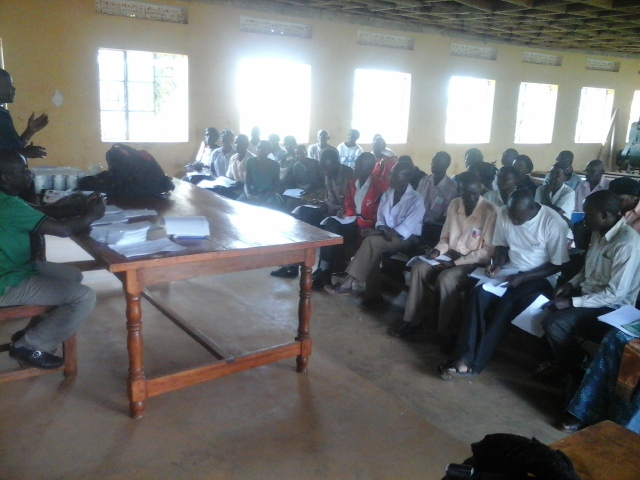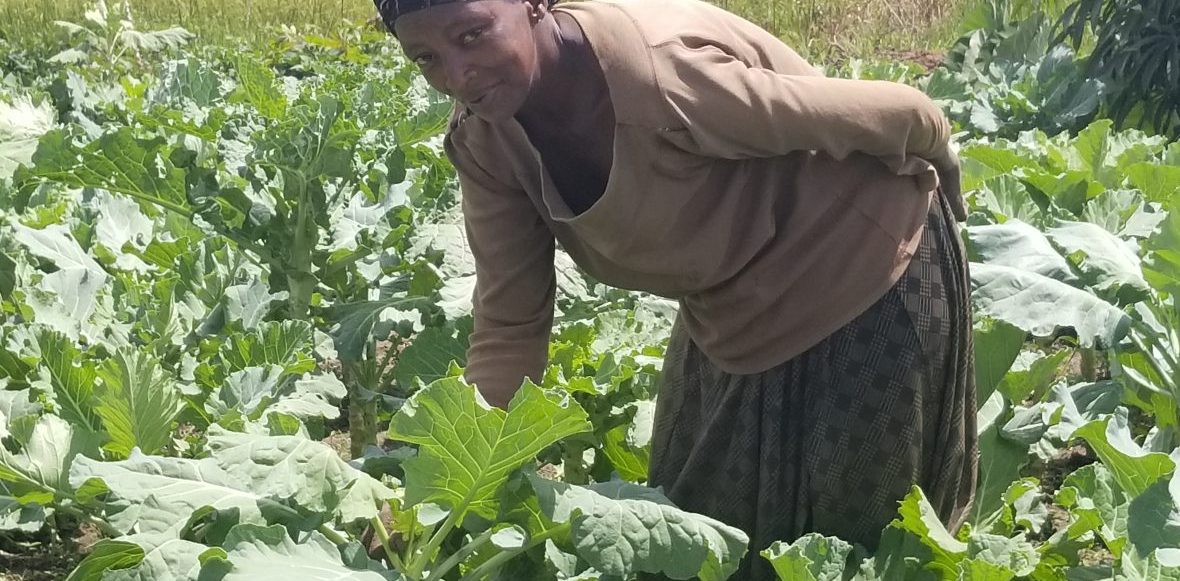
Eco-Agric Uganda with funding from GAPP is implementing an advocacy project in Buhimba and Kiziranfumbi Sub Counties (Hoima district) aiming at enhancing Agribusiness entities’ participation in Local Governance in Hoima District. The goal of the project is to contribute to increasing participation of agro processors, producers and marketers in planning, budgeting and monitoring service delivery in the communities by June 2017. The project objectives are
To increase by 40% the participation of1,280 agro producers 50 processors and 200 marketers in local government planning, budgeting and monitoring by June 2017 and
To increase local revenue of target sub counties among 1280 agro producers 50 processors and 200 marketers by 50% by July 2017.
The partners for project implementation include the community monitors (CMs), Local Revenue Peer Mentors LRPM), Village Health Team (VHT), Local Government (Sub-county and Hoima District) and Community/opinion leaders. They conducted Mapping (census) of all existing agro business community members operating in the project target area. Selection of local revenue mentors was also conducted and formed 8 clubs per parish and 8 revenue mentors selected to help in mobilizing the agro processors and marketers in lobbying and advocating for improved service delivery. Revenue peer mentors who were selected have participated in facilitating community dialogues to address the existing challenges in the Agri business and effective co-ordination of community engagements in decision making processes. Lobbying and Advocacy in Health, water and sanitation, agriculture and educational sectors have been conducted which resulted in reduction of late coming to school by the pupils, reduction of pupils workload working in teacher’s gardens during class time, absenteeism of teachers, absenteeism of pupils, late coming by teachers and staff quarters improvement, deployment of new staff, increment of pupils in schools. These achievements, if sustained over time, are expected to progressively improve performance of the education sector in the district.

In health sectors, the issues which were identified like; negative behavior and/or conduct of health workers, negative behaviors, attitudes and approaches of clients, lack/poor functional of Health Management Committees in some H/Cs, shortage of drugs and other health materials in some H/Cs and poor or lack of motivation from government. For each of the challenges raised, the organization engaged various communities and stakeholders to make effort in taking steps to address them. Some of the issues have improved especially on attitudes and approaches of clients, hygiene and sanitation around the Health facilities and regular attendance of staff at health facilities
The project implementation strategy includes trainings and quarterly dialogues, lobbying and advocacy on taxation, and use of Public Expenditure Tracking System (PETS) tools for the agricultural sector. During dialogues and participatory planning and budgeting, communities define and understand various roles, responsibilities and functions of stakeholders in the development process with a focus of improving budget allocation and expenditure; taxation issues and revenues management. Local revenue peer mentors and revenue clubs will improve local tax systems by making them more transparent, understandable and easier to manage. Mapped agro processors and agro marketers provide information important in budgeting and tax collection while the peer tax mentors and revenue clubs enhance local revenue collections, Trainings in participatory planning, budgeting and monitoring plus tax payment increase citizens’ participation in organizing, identifying and articulating their needs for improved access to social services, with increased community engagement in monitoring of local government resource management. Farmers and Agri-value chain/supply dealers will have collective voice to enhance accountability in the communities.
